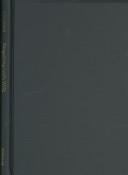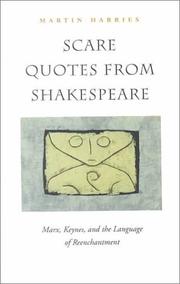| Listing 1 - 4 of 4 |
Sort by
|

ISBN: 9780823227334 0823227332 9780823227341 0823227340 0823247384 9786612698743 0823241025 1282698745 0823237648 0823227359 Year: 2007 Publisher: New York : Fordham University Press,
Abstract | Keywords | Export | Availability | Bookmark
 Loading...
Loading...Choose an application
- Reference Manager
- EndNote
- RefWorks (Direct export to RefWorks)
Can looking at disaster and mass death destroy us? Forgetting Lot’s Wife provides a theory and a fragmentary history of destructive spectatorship in the twentieth century. Its subject is the notion that the sight of historical catastrophe can destroy the spectator. The fragments of this history all lead back to the story of Lot’s wife: looking back at the destruction of the cities of Sodom and Gomorrah, she turns into a pillar of salt. This biblical story of punishment and transformation, a nexus of sexuality, sight, and cities, becomes the template for the modern fear that looking back at disaster might petrify the spectator. Although rarely articulated directly,this idea remains powerful in our culture. This book traces some of its aesthetic, theoretical, and ethical consequences. Harries traces the figure of Lot’s wife across media. In extended engagements with examples from twentieth-century theater, film, and painting, he focuses on the theatrical theory of Antonin Artaud, a series of American films, and paintings by Anselm Kiefer. These examples all return to the story of Lot’s wife as a way to think about modern predicaments of the spectator. On the one hand, the sometimes veiled figure of Lot’s wife allows these artists to picture the desire to destroy the spectator; on the other, she stands as a sign of the potential danger to the spectator. These works, that is, enact critiques of the very desire that inspires them.The book closes with an extended meditation on September 11, criticizing the notion that we should have been destroyed by witnessing the events of that day.
Audiences --- Influence (Psychology). --- Memory. --- Recollection (Psychology). --- Spectators --- Suffering. --- Violence. --- Psychology. --- Influence (Psychology) --- Recollection (Psychology) --- Recall (Psychology) --- Memory --- Recognition (Psychology) --- Retention (Psychology) --- Intellect --- Psychology --- Thought and thinking --- Comprehension --- Executive functions (Neuropsychology) --- Mnemonics --- Perseveration (Psychology) --- Reproduction (Psychology) --- Persons --- Audiences, Communication --- Communication audiences --- Communication --- Affliction --- Masochism --- Pain --- Violent behavior --- Social psychology --- Conformity --- Example --- Persuasion (Psychology) --- Social aspects

ISBN: 0804736219 Year: 2000 Publisher: Stanford (Calif.): Stanford university press
Abstract | Keywords | Export | Availability | Bookmark
 Loading...
Loading...Choose an application
- Reference Manager
- EndNote
- RefWorks (Direct export to RefWorks)
Keynes, John Maynard --- Marx, Karl. --- Shakespeare, William --- Influence.
Book
ISBN: 9780823237647 Year: 2009 Publisher: New York, NY
Abstract | Keywords | Export | Availability | Bookmark
 Loading...
Loading...Choose an application
- Reference Manager
- EndNote
- RefWorks (Direct export to RefWorks)
Book

ISBN: 3110383675 3110343932 9783110292299 3110292297 9783110343939 Year: 2014 Publisher: Berlin Boston
Abstract | Keywords | Export | Availability | Bookmark
 Loading...
Loading...Choose an application
- Reference Manager
- EndNote
- RefWorks (Direct export to RefWorks)
To metaphorize the world as a theatre has been a common procedure since antiquity, but the use of this trope became particularly prominent and pregnant in early modern times, especially in England. Old and new applications of the "theatrum mundi" topos pervaded discourses, often allegorizing the deceitfulness and impermanence of this world as well as the futility of earthly strife. It was frequently woven into arguments against worldly amusements such as the stage: Commercial theatre was declared an undesirable competitor of God's well-ordered world drama. Early modern dramatists often reacted to this development by appropriating the metaphor, and in an ingenious twist, some playwrights even appropriated its anti-theatrical impetus: Early modern theatre seemed to discover a denial of its own theatricality at its very core. Drama was found to succeed best when it staged itself as a great unmasking. To investigate the reasons and effects of these developments, the anthology examines the metaphorical uses of theatre in plays, pamphlets, epics, treatises, legal proclamations and other sources.
Theater --- History --- Theatrical science --- Drama --- English literature --- anno 1500-1599 --- anno 1600-1699 --- Great Britain --- England. --- Angleterre --- Anglii͡ --- Anglija --- Engeland --- Inghilterra --- Inglaterra --- Metaphorology. --- Shakespeare, William. --- Theatre. --- Theatrum Mundi.
| Listing 1 - 4 of 4 |
Sort by
|

 Search
Search Feedback
Feedback About UniCat
About UniCat  Help
Help News
News